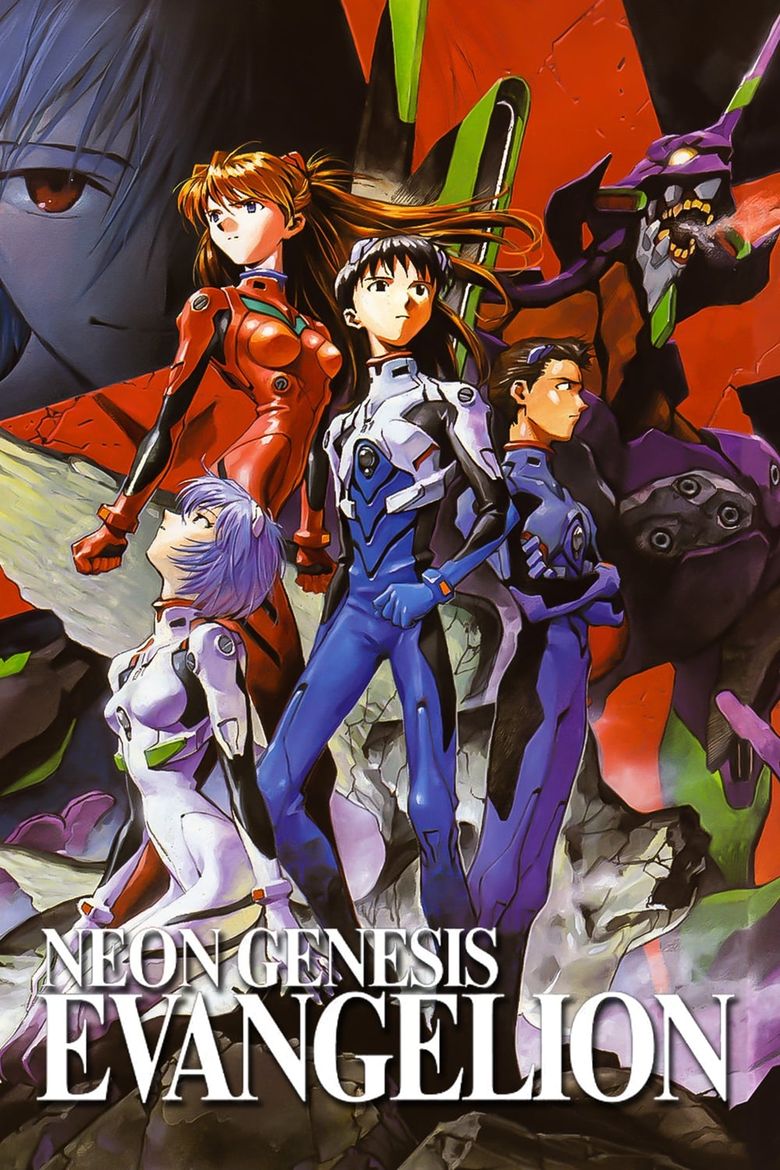Neon Genesis Evangelion
 |
| The Main Trio and their Evas |
I only just finished watching Neon Genesis Evangelion, even though it's been on Netflix for three months. It took me a while to get into this highly-regarded anime, which I'd always heard spoken of, usually in the same breath as Cowboy Bebop, only because I personally found the heavy themes it dealt with hard to immerse myself in, episode after episode, because I related so deeply to them. (Though, I must say, I never once skipped over the title sequence because the theme song was so good.)
The best elevator-pitch I've been able to come up with to describe Evangelion to the uninitiated is this: "An Action, Mecha Anime, as done by Albert Camus."
Camus was one of the foremost philosophical writers of the 20th Century. He frequently wrote fiction that explored the ideas that interested--or more accurately, obsessed--him, particularly ideas related to absurdism and (though he hated the label), existentialism. His writings, in the end, earned him the Nobel Prize in Literature, the second youngest recipient to date, at age 44 (Rudyard Kipling won it at 40).
This post isn't about him, but I bring Camus up though because several persistent themes of his writing are also themes this anime explores: loneliness, social anxiety, the pursuit of happiness, self-perception versus exterior perception, and ideas of self-worth.
 |
| Shinji Ikari |
Shinji's arc (at least in the series, not the films), is a classic one that we see in fiction, and in life: the push-and-pull of vulnerability and emotional self-preservation.
Think about Shinji as a character. He's never had a real family life. He's coasted through life by doing what he has to do, not what he wants to do, because it's easier. He's allowed the outside world to determine everything for him, especially his identity. He's never really had any kind of exterior validation from anyone, only rejection. He is, in a word, lonely, and he merely exists, he hasn't lived.
Suddenly, though, he finds himself in a situation where human connection--again, something he's never truly experienced--becomes a possibility for him, and he struggles through the whole show with a choice: to stay closed off in his isolated shell, or to embrace the messiness of human connection because that's where one can find happiness and meaningfulness in life.
Why does he struggle with this though? Wouldn't someone who's never had something close to a real family or genuine friendships jump at the chance to experience this? Not necessarily. Human beings are, innately, creatures of habit. We tend to stick with what we know, with what we're comfortable with, even if our comfort zone is uncomfortable (as Marc Maron once joked). And Shinji has never had these connections, ever, which has, over time, caused him to believe he's unworthy of them--not because anyone's told him this, but because he's convinced himself, subconsciously that this is true. "I've had this, therefore, there must be something wrong with me that the world has denied me this."
As the old adage goes, "The chains of habit are too light to be felt until they're too heavy to be broken."
The dramatization of that struggle is, what I think, makes this show as remarkable as it is. Shinji's struggle is a universal human struggle. Everyone in the world, at some point, has struggle with the idea that they are unworthy of human love and kindness. It's a form of self-hatred that we all seem to struggle with, and we struggle with it, whether we think so or not, because we all have insecurities. (If you don't, you're either a narcist or a sociopath.) Yet, the original series begs us not to allow those voices in our heads, those negative whisperers, those self-rejecters, to dominate our lives and our thinking.
The final two episodes of the series make this point very clear. During those events, Shinji is forced to confront these things head-on, after so many dark events have transpired. He is practically inches away from enclosing himself within his shell of isolation again, to return to those old habits after making so much progress. Yet in two episodes, the show forces him to see and realize what it is, after all this time, that has made his life worth living up to this point.
His friendships, his bonds with other people, are what have given new meaning to his life, and his desire to retain those connections, despite their messiness, despite their humanity, despite their certainty, is what finally compels him to break free of his older self and accept his own humanity.
Shinji's journey is a metaphor for us all. We all have to learn, at our own speeds, to accept ourselves for the messy beings we are. With that self-acceptance will come the belief that others will accept us for who we are, peccadilloes and all.

